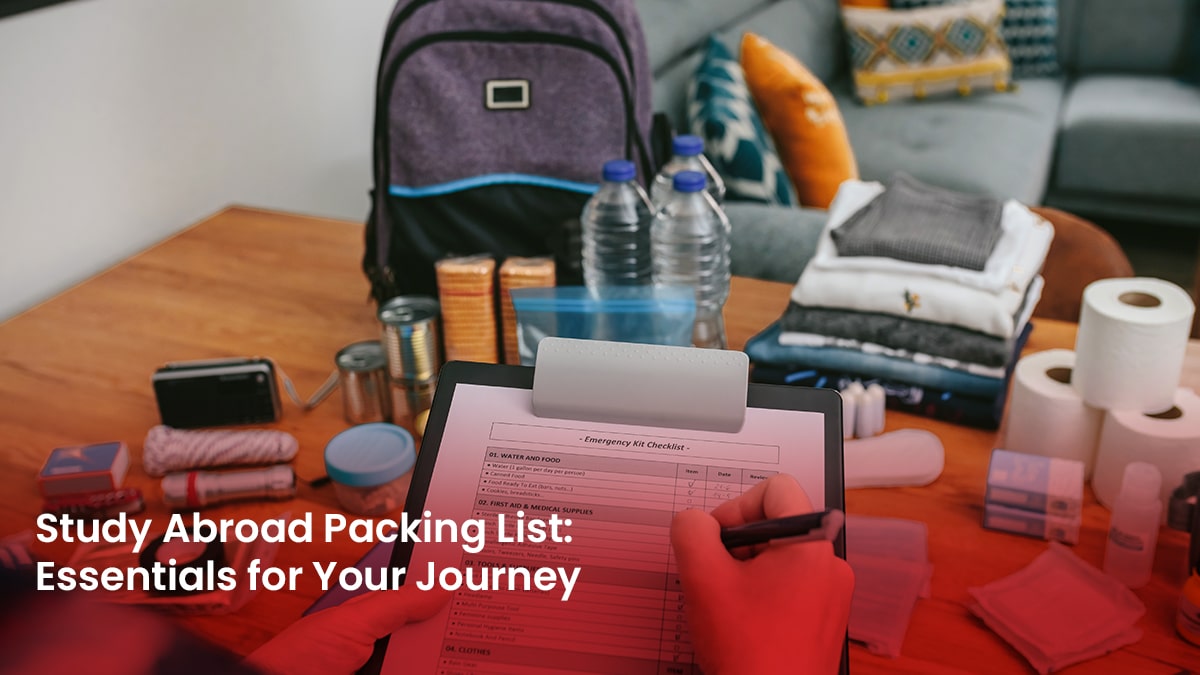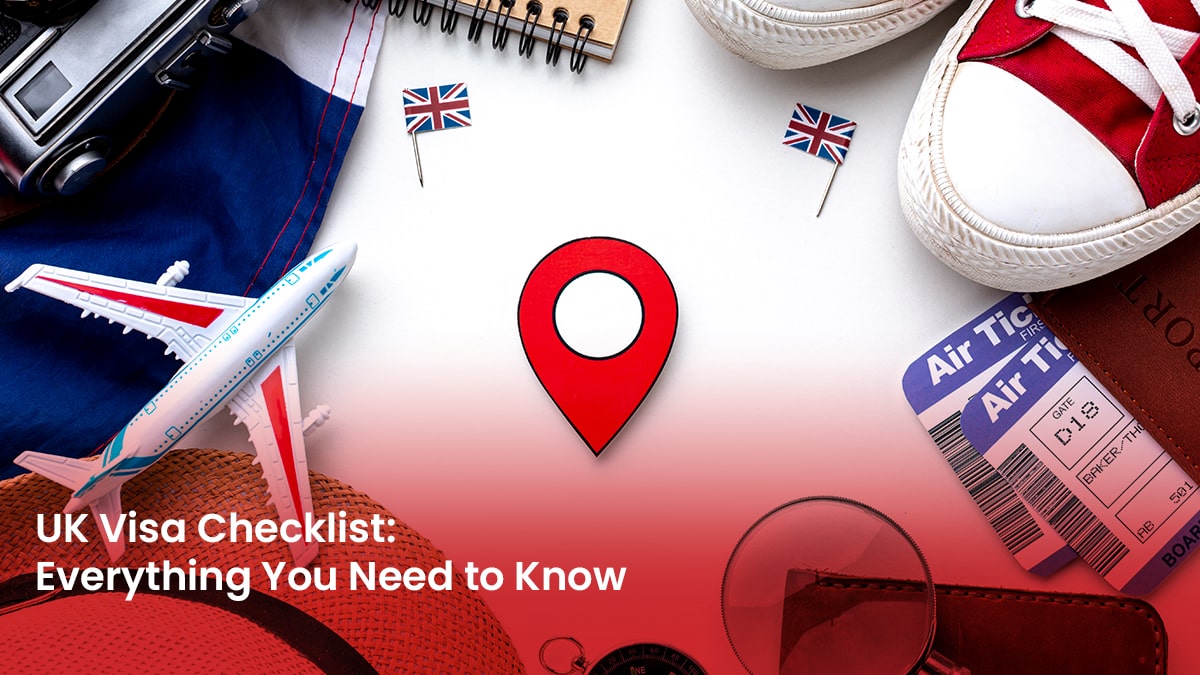Studying abroad is a life-changing experience that offers the chance to immerse yourself in a new culture, gain a world-class education, and build lifelong memories. However, packing for this adventure can be overwhelming. Creating a comprehensive study abroad packing list is crucial to ensure you have everything you need while avoiding overpacking. This guide will provide a detailed list of essential items for your journey, tailored for specific study destinations, and tips for effective packing.
Why a packing list is essential
A well-prepared packing list serves several important purposes:
- Avoiding overpacking: A checklist helps you bring only what you need, saving space and weight in your luggage.
- Ensuring essentials are included: With a list, you can keep track of important documents and personal belongings, minimizing the risk of forgetting crucial items.
- Reducing stress: Knowing you have a plan can alleviate packing anxiety, allowing you to focus on enjoying your experience.
What are the process in starting an international education?
Essential items for your study abroad packing list
Important documents
Before packing clothes and personal items, ensure you have all the necessary documents:
| Document |
Purpose |
| Passport | Required for international travel |
| Visa | Legal permission to study at your destination |
| Acceptance letter | Proof of enrollment in your study program |
| Insurance documents | Health and travel insurance coverage |
| Financial statements | Proof of funding or scholarships |
| Academic transcripts | Required for enrollment and credit transfers |
Clothing
When packing clothing, consider the climate of your destination and the length of your stay.
General clothing items:
- Casual wear: T-shirts, jeans, and comfortable clothing.
- Formal attire: Outfits for presentations or formal events.
- Outerwear: Jackets or coats suitable for the local climate.
- Footwear: Comfortable shoes, sandals, and formal shoes.
- Accessories: Scarves, hats, and gloves if traveling to colder regions.
Toiletries and personal care items
Packing your toiletries can help you maintain your personal hygiene while abroad. Consider the following:
|
Toiletry |
Notes |
| Toothbrush and toothpaste | Travel-sized options can save space |
| Shampoo and conditioner | Consider solid bars to save space and weight |
| Skincare products | Keep essentials for your daily skincare routine |
| Sunscreen | Protect your skin, especially in sunny regions |
| First aid kit | Include basic medications and band-aids |
Electronics
In today’s digital age, bringing the right electronics is essential for communication and study. Make sure to include:
- Laptop or tablet: For studying and staying connected.
- Phone: With international roaming or a local SIM card.
- Chargers: For all your electronic devices.
- Power adapters: Suitable for the plug types in your destination country.
Miscellaneous items
Lastly, don’t forget these important items:
|
Item |
Purpose |
| Backpack | For daily use while exploring or attending classes |
| Water bottle | Stay hydrated while on the go |
| Travel guide or maps | Useful for navigating your new city |
| Snacks | Bring some favorite snacks from home |
How to Choose a Study Abroad Destination: Your Ultimate Guide
Specific study abroad packing lists for popular destinations
Study abroad packing list for Japan
If you’re planning to study in Japan, consider the following additions:
- Comfortable shoes: You’ll likely do a lot of walking.
- Cultural attire: A yukata or kimono for special occasions.
- Portable Wi-Fi device: To stay connected on the go.
Study abroad packing list for Paris
For those heading to Paris, add these items to your list:
- Fashionable clothing: Paris is known for its fashion, so pack stylish outfits.
- Compact umbrella: Paris weather can be unpredictable.
- French language guide: Useful for navigating everyday interactions.
Study abroad packing list for Australia
Studying in Australia? Don’t forget:
- Beachwear: If you plan to explore the coastal regions.
- Sunscreen: Protect against the strong sun.
- Activewear: For outdoor activities and sports.
Study abroad packing list for the UK
If you’re heading to study in UK, consider packing:
- Layered clothing: The UK can be chilly and rainy.
- Comfortable walking shoes: Essential for exploring cities.
- Travel adapter: The UK uses different plug types.
Study abroad packing list for Canada
When studying in Canada, make sure to include:
- Winter gear: Heavy jackets, gloves, and boots for the winter months.
- Thermal wear: To stay warm in colder climates.
- Reusable shopping bags: Helpful for groceries and eco-friendly.
Study abroad packing list for Italy
If Italy is your destination, add these to your packing list:
- Fashionable clothing: Italians take pride in their style.
- Travel journal: To document your experiences and memories.
- Portable phone charger: Keep your devices charged during long days of exploration.
Study abroad packing list for Germany
For studying in Germany, consider the following:
- Heavy-duty umbrella: Rain is common in Germany.
- Portable snacks: Useful during long study sessions or travel.
- German language book: Helpful for learning the basics.
Study abroad packing list for Ireland
If you’re going to study in Ireland, don’t forget:
- Water-resistant jacket: The weather can be quite wet.
- Comfortable hiking shoes: If you plan to explore the countryside.
- Guidebook: Useful for exploring local attractions.
Quick Guide: Things to Pack for Ireland
Study abroad packing list for New Zealand
For those planning to study in New Zealand:
- Outdoor gear: If you enjoy hiking or outdoor activities.
- Reusable water bottle: Stay hydrated while exploring nature.
- Sun hat: Protection from the sun during outdoor activities.
Packing list for studying abroad in Europe
If you’re considering multiple countries in Europe, consider these items:
- Versatile clothing: Pack items that can be mixed and matched.
- Travel-friendly suitcase: Lightweight and easy to maneuver.
- Global SIM card: Stay connected across multiple countries.
Conclusion
Creating a study abroad packing list is a vital part of preparing for your journey. By understanding what to include and considering your destination’s unique requirements, you can ensure a smooth transition to studying abroad. Remember to tailor your packing list to your specific country and personal needs, and don’t forget to enjoy the experience!
MSM Unify overseas education consultant is here to help you navigate your study abroad journey, from choosing the right destination to preparing your packing list. Together, we can ensure that you have a successful and enriching experience studying abroad.
FAQs about study abroad packing lists
1. What should I include in my study abroad packing list?
Include important documents, clothing suitable for the climate, toiletries, electronics, and miscellaneous items like a backpack and reusable water bottle.
2. How do I know what to pack for a specific country?
Research the local culture, climate, and customs of your destination to tailor your packing list accordingly.
3. Can I buy things abroad instead of packing them?
Yes, you can buy some items at your destination, but it’s advisable to bring essentials like medication and specific toiletries.
4. How can I save space in my luggage?
Use packing cubes, roll your clothes, and choose versatile clothing items to maximize space.
5. Are there any items I should avoid packing?
Avoid packing items that are prohibited or restricted in your destination country, such as certain foods or large electronics.
6. How much luggage can I bring when studying abroad?
Check with your airline for specific baggage allowances, as this can vary significantly.
7. Do I need to pack my laptop and other electronics?
If you will use them for study or communication, pack them. Don’t forget chargers and adapters.
8. Should I bring winter clothing if studying in a warm country?
Only pack what is necessary for the climate. If you plan to travel to colder regions, consider packing a light jacket.
9. How can I prepare for cultural differences when packing?
Research cultural norms regarding dress codes and personal items to ensure you pack appropriately.
10. Is it better to pack light or bring everything I might need?
Packing light is usually best, as it allows for easier travel and adjustments. Prioritize essential items and versatility.












